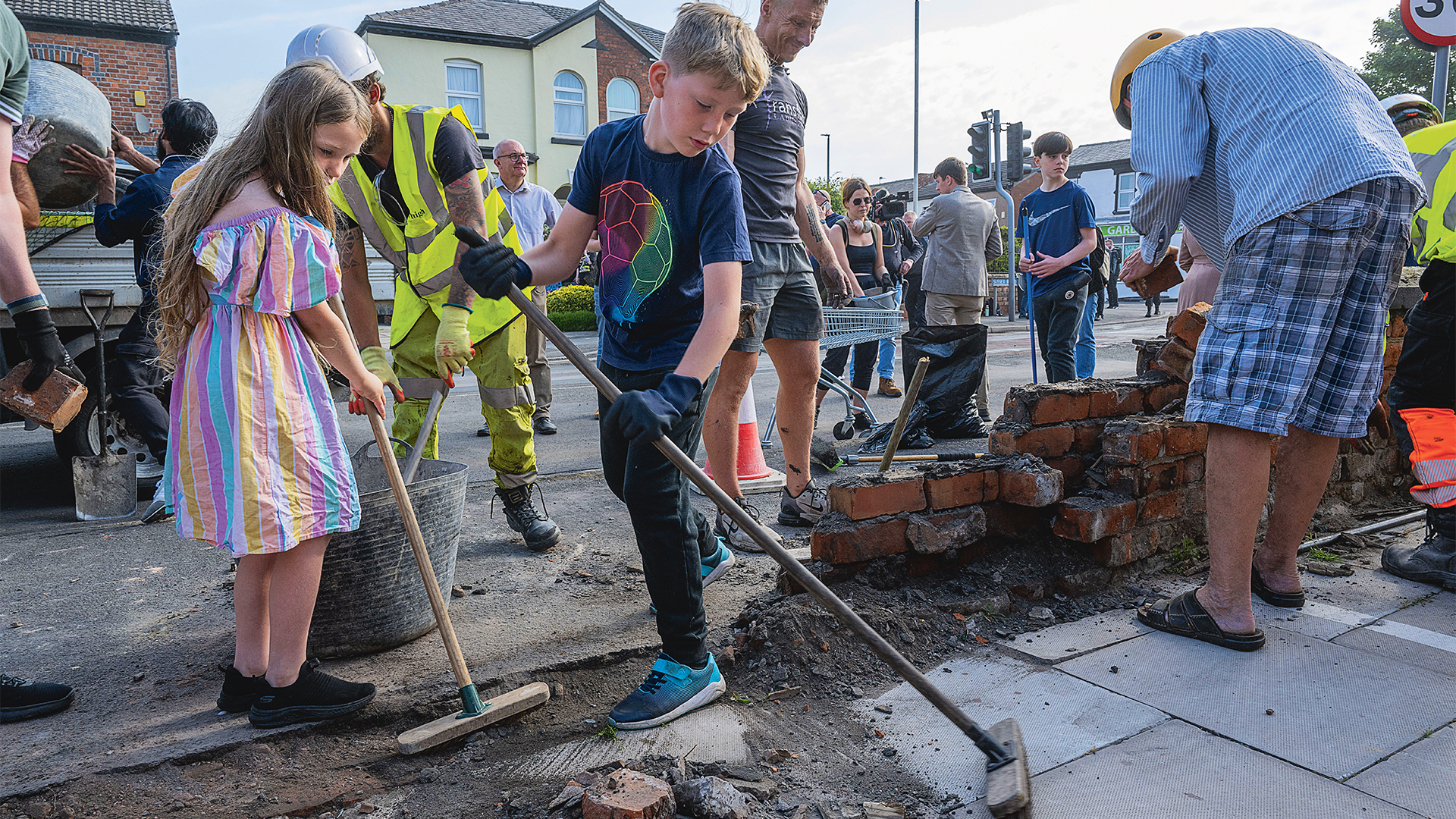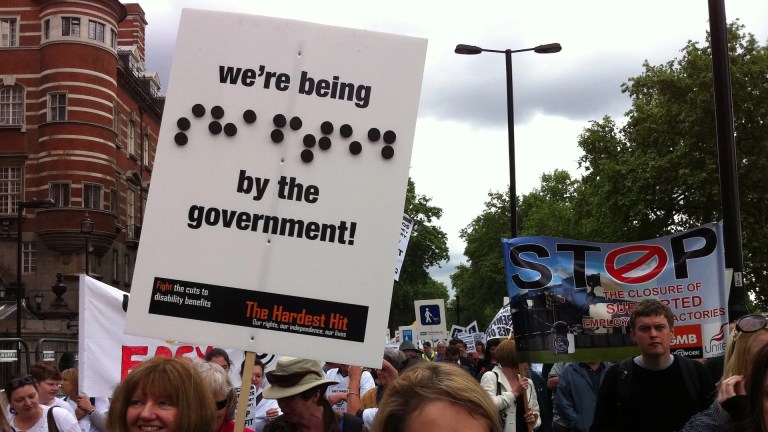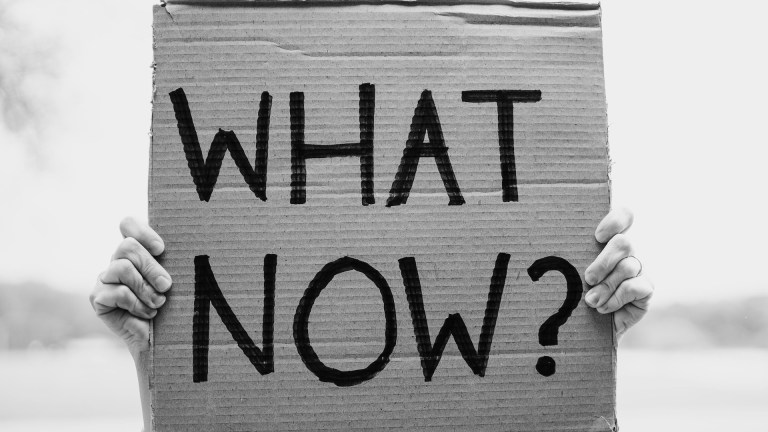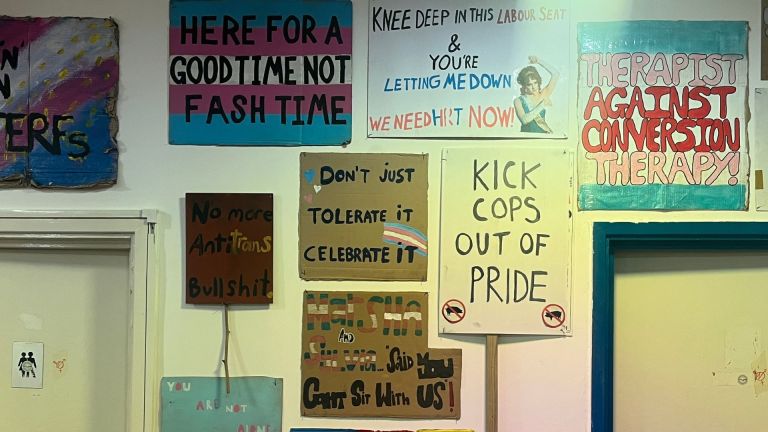Children’s Commissioner Rachel De Souza said some kids were “nosy” and spoke of one boy on a bike with friends who came across the disorder and, egged on by adults, threw a stone and ended up with a criminal record. She talked about wiping custodial records for young people caught up by circumstance, saying: “I hope that we can think of how they can make reparation but also let these children have a life going forward.”
In the days that followed the riots, there were glimmers of hope as people came together to clean up and repair the damage. Thousands of peaceful, anti-racism protesters rallied in cities and towns across the UK chanting phrases like “refugees are welcome here”. What was most striking, says Conleth Burns of research agency More in Common, is that people saw those involved in the clean-up as representing “real Britain”.
“Many Britons found hope in this response for ordinary people up and down the country to rebuild their communities and stand with their neighbours,” he said. “Three in four Britons also say that the rioters and protesters were shaming rather than standing up for Britain, and 86% say the rioters and protesters don’t speak for them.”
While the rioters might have set out to divide and threaten communities, Burns said research showed they have “squarely failed”.
“What they have done is to unite the public in opposition to their violence and hatred.”
Get the latest news and insight into how the Big Issue magazine is made by signing up for the Inside Big Issue newsletter
Advertising helps fund Big Issue’s mission to end poverty
There were countless individuals who united to heal division. In the aftermath in Sheffield, volunteers, campaigner organisations, politicians, service providers, churches and trade unions gathered at in invite-only meeting to hear from asylum seekers in hotels about what would make them feel safe and what support they needed.
One of the organisers was Melinda Mo Martinez, a migrant herself. She recalls feeling sadness and fear when she heard about the riots, but her biggest fears were not for her own safety.
“My biggest suffering was to witness the division, the hatred, the anger and the dehumanisation of human beings,” she says. “The riots didn’t start with the death of the three girls. It is pure racism and has been under the surface for more than 30 years. We need a long process of healing to solve this problem.”
In Brighton, Alaa Wehbi, a facilitator for Music Action International and Best Foot Music, spoke to many asylum seekers who said that they felt isolated and unwanted.
“While support from the local community helped mitigate some of this fear, the initial impact of the riots left emotional scars, reminding many asylum seekers of the very conflicts and persecution they had fled,” he says.
Wehbi was determined to do what he could to show his support.
Advertising helps fund Big Issue’s mission to end poverty
“Musicians hosted live events and benefit concerts to raise awareness and show solidarity with asylum seekers and those impacted by the violence. Best Foot Music held workshops in Brighton library and invited people of all backgrounds to participate, share their stories and co-create pieces that expressed shared experiences of hope and healing.”
In Worcestershire, Ros Gowers, a volunteer at Evesham Sanctuary Centre, kept going with the support offered to asylum seekers. The centre didn’t cancel summer trips, lessons or opening times. “We carried on, because it’s more important than the people causing trouble,” she says.
Volunteers played their part at strengthening the sense of unity across the UK, and the government pledged £15m to affected areas. The Community Recovery Fund was established with each eligible local authority receiving £600,000 to be spent before the end of this financial year to reduce the risk of further disorder in the future and rebuild social trust.
Twenty areas were targeted, from Aldershot to Tamworth. But the government guidance highlighted that the riots were not solely local issues. It reads: “We recognise that many of the impacts are felt by communities across boundaries and were driven by individuals travelling from neighbouring areas. We therefore encourage local authorities to work and engage with partners across boundaries, to ensure support reaches those most in need.”
Applications are ongoing and are set to create a lasting, positive impact. For example, projects applying for funding in Middlesbrough will fall under a ‘We Are Middlesbrough’ campaign. Different pots have been allocated to activities involving music, film and food, plugging gaps in existing services and supporting vulnerable people.
Middlesbrough mayor Chris Cooke said: “These funding pots can provide a real boost to different projects right across our town. Together we can come up with a programme that helps us celebrate the positive community action that is a huge part of life in the town. What happened last August will not define us.”
Advertising helps fund Big Issue’s mission to end poverty
In Southport, still reeling from the young lives lost and all those affected, £5.6m of government funding will be made available. Of that, almost £2m will be used to support Southport’s schools, targeting children with complex emotional needs.
Do you have a story to tell or opinions to share about this? Get in touch and tell us more. Big Issue exists to give homeless and marginalised people the opportunity to earn an income. To support our work buy a copy of the magazine or get the app from the App Store or Google Play.










